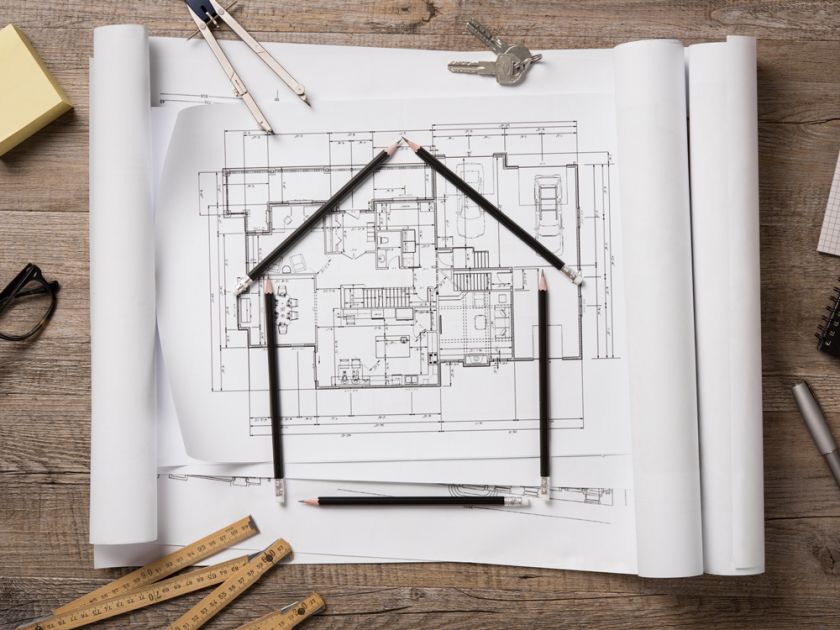Many Canadians are choosing to build custom homes with special features to suit their lifestyles and tastes. A home construction mortgage can provide the financing you need to create the custom home you want.
While building your own home can be a creative and exciting experience, it can also present financial challenges. Financing the construction of your home can be complex, and that’s where the expertise of a mortgage specialist comes in. You will need help and in-depth knowledge of construction mortgages and a lot of support from start to finish.
Applying for a construction mortgage
You can apply for your mortgage and lock in your interest rate before construction begins. Together, you and your mortgage specialist will review the terms and amortization periods in order to choose the option that best suits your needs. From there, your mortgage specialist will arrange for an appraiser to appraise your lot and your building plans.
Construction mortgages get advanced in draw stages that co-ordinate with the percentage of the completion of your home construction and the contractor’s preferred payment schedule. You will need to work out a payment schedule with your contractor that supports these funding requirements. Most contractors require payments in stages, typically after the foundation is in, once the framing is up, after the interior is finished and at completion of the entire project.
Once your construction mortgage is approved, your mortgage rate guarantee begins and your lender will require you to take the first draw of the mortgage within a certain time frame, generally 90 days. You will have a time frame such as one year to complete your construction. You can also finance the land purchase through the first mortgage draw.
This is only available for conventional transactions where you have a minimum 20-per-cent down payment. While your home is being built, you will pay interest only on the total mortgage amount drawn to date. The appraiser’s final inspection report must say that your house is 100-per-cent complete and ready for occupancy. At this point you will begin to make mortgage payments of both principal and interest.
Getting started
The key to a successful home construction project is for you and your contractor to agree up front on a detailed plan, budget and timeline. So before you apply for a construction mortgage, establish a realistic budget and finalize your building plans with your contractor or builder. The more thorough your planning, the fewer surprises and unexpected costs there will be down the road. Here are a few things to keep in mind:
Make sure the zoning of your lot allows for residential construction.
Find out if the builder/contractor is a member of a recognized new-home warranty program.
Have a good understanding of all the potential construction costs involved, including costs for the following: engineer’s or architect’s fees for drafting your house plans; site-clearing; servicing, including building permits and permits for wells, septic systems and hydro; home foundation, framing, windows, doors and roofing; external upgrades like stone, stucco and sprinkler systems; internal upgrades to flooring, lighting and cabinetry for kitchens and bathrooms; landscaping; and paving the driveway.
Factor in a contingency budget of at least 10 per cent for cost overruns. Although, this is generally not required if you are having a home constructed from a builder’s list of approved house plans and upgrades.
Ready to start building your dream home? Detailed planning, preparation, and co-
ordination with your mortgage specialist and contractor will help you get there a lot easier.

